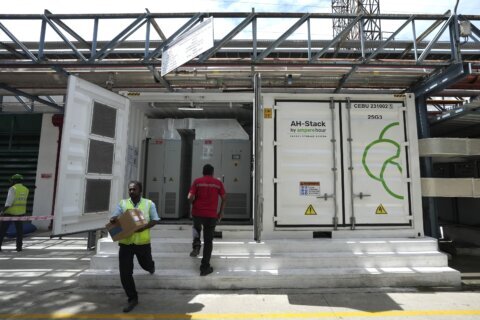Many people dream of living in New York City and enjoying the nightlife and amenities it has to offer. But right across the river from NYC is good old New Jersey — and while it’s an expensive place to live in its own right, you might end up with much more square footage for your dollar.
That said, living in suburbia comes with added costs. There are property taxes to think about, and New Jersey has the dubious distinction of having the highest ones in the nation.
Also, many New Jersey residents own standalone homes, as opposed to the condos and co-ops that are common in NYC. That means added expenses for maintenance, utilities and repairs.
So all told, which is the cheaper option: New York City or New Jersey? Well, spoiler alert: There’s no single answer. That’s because the cost of living in either place will hinge on so many factors, such as the type of home you buy, where you buy and what other lifestyle choices you make in conjunction with your home purchase.
Jennifer Darby Metzger, broker/owner at ERA Justin Realty Co., is dually licensed in New Jersey and New York and has over 15 years of experience in real estate. “Determining whether it’s cheaper to live in New York City versus New Jersey depends on your lifestyle preferences,” she says. And there are different factors that will influence your costs.
[Condo vs. Townhouse vs. Co-Op: Which Is Right for You?]
Housing
In New York City, the median listed home price is $799,000, according to Realtor.com, and the median price per square foot is $803. In Bergen County, New Jersey, which is one of the closest counties to NYC, the median listed home price is $709,000 and the median price per square foot is $371.
What this tells us is you might get a lot more space for your money in New Jersey than in NYC. However, you won’t necessarily pay less for that home, depending on how much space you want.
You’ll also need to consider the cost of keeping your home in good shape. “There’s a lot more maintenance in New Jersey,” says Darby Metzger. “It’s a lot more responsibility, too, compared to apartment living,” which is generally a component of owning a home in NYC. And Darby Metzger likes to remind buyers that in the suburbs, they need to factor in outdoor maintenance, like lawn mowing and snow removal.
Darby Metzger also cautions that homeowners insurance can be more expensive when you own a standalone house. And the larger your home, the more it might cost to insure.
Transportation
An upside of city living is that there can be huge transportation-related savings, says Darby Metzger.
“You don’t need to have a car in the city,” she says. “And public transportation is inexpensive. In New Jersey, you often need a car.”
As of late 2023, AAA put the average annual cost of vehicle ownership at $12,182, or $1,015 per month. Living in NYC might mean spending less than one-third of that per month on transportation, even accounting for the occasional rideshare.
Home-Related Expenses
Certain home-related expenses may be higher in New Jersey than NYC, given the generally larger size of homes there. Utility bills, for example, are likely to be higher in a 3,000-square-foot house than a 1,200-square-foot apartment.
There’s also furniture to think about. The more space you have, the more you might spend to fill it.
Over time, houses need new driveways and roofs, furnace replacement, updated kitchens and bathrooms, added patios and backyard amenities. The bigger the home, the more these projects will cost.
[READ: Guide to Average Home Maintenance Costs.]
Entertainment
Access to entertainment tends to draw a lot of people to NYC. However, Darby Metzger warns, “You might spend more on entertainment in NYC by virtue of having access to it. And you might go out to dinner more often because there are all these great restaurants and you don’t have a large kitchen.”
On the flip side, if you live in New Jersey and want to go into the city for a night out, the cost could be substantial because you might need to pay for things like tolls and parking if you drive in, and that’s before even paying for events or activities.
Taxes
Taxes are a part of life no matter where you work and live. But things can get a little tricky if you opt to live in New Jersey and commute and work in NYC, or vice versa.
Nicole DeRosa, tax partner at Wiss & Co., knows that it’s common to live in New Jersey and work in NYC. And in that situation, you will have New York state taxes withheld from your earnings. You’ll also have to file a state tax return in both New York and New Jersey.
However, DeRosa says, “Generally speaking, you won’t get double taxed on the same income.”
What will typically happen is that as a New Jersey resident, you’ll get credit for taxes paid to New York on your New Jersey state return. It may not be a dollar-for-dollar wash, DeRosa explains. But for the most part, one state tax bill should cancel out the other so you’re effectively only paying income tax to one state.
On the other hand, if you live in NYC and work there, you’ll pay not just New York state tax, but NYC taxes, too. In fact, DeRosa says, you’ll pay NYC taxes for being a resident of the city even if you don’t work there.
Furthermore, while it’s a bit less common to see people living in NYC and working in New Jersey, it can happen. And in that case, it’s the same deal. You’ll pay taxes on your income to New Jersey, but you’ll get a credit for having paid those taxes on your New York state tax return.
DeRosa says it’s hard to determine whether you’ll pay more state income tax as a New Jersey resident versus a resident of NYC. However, DeRosa says one thing house hunters should know is that in New Jersey, the state allows you to take up to a $15,000 deduction for property taxes on your state return. In NYC, state taxes work differently in the context of property taxes and deductions, and it’s not as simple a formula as in New Jersey.
To be clear, the federal tax deduction for SALT — state and local taxes — remains capped at $10,000. And that $10,000 limit encompasses both your state income and property taxes. But depending on where you live and your circumstances, you may be able to claim a different deduction on your state tax return.
If you’re hesitant to choose New Jersey as your home because you intend to continue working in NYC, know that you won’t necessarily lose out from a tax perspective. Granted, you might spend more time commuting, as opposed to hopping on the subway and being at your office in 15 minutes or less, but know that you’re generally not looking at a double income tax situation.
[READ: Navigating New York’s High Mortgage Rate Environment]
Questions to Ask When Making Your Choice
Clearly, there are different costs involved in living in NYC versus nearby New Jersey. Darby Metzger stresses that it’s important to think not just about costs, but also the lifestyle you want, and strike a good balance between the two.
If you’re grappling with this decision, Darby Metzger advises considering these questions:
— How much living space do you need? If you have a larger family, apartment living may not be optimal for you.
— Is it important to you to have outdoor space? Maybe you have a dog, or you’d like private outdoor space for yourself. That’s hard to find in NYC.
— Do you work from home versus an office? You may not be able to comfortably work from home if your living space is tiny.
— Would moving to the suburbs mean a lengthy commute? A really long bus or train ride twice a day could negatively impact your work-life balance.
— Would living in a more congested area or too remote of an area cause you stress? Some people crave wide open spaces, while others don’t like feeling isolated.
— What do you like to do with your time? If your ideal weekend involves hiking and gardening, New Jersey could be a good fit. If you love to go to the theater, NYC may be a better bet.
— How much time do you have to dedicate to homeownership? In the suburbs, there’s generally a lot more work to do.
If you’re really torn over the decision, Darby Metzger suggests considering a New Jersey suburb that’s NYC-adjacent with easy access. There are some towns, she says, with convenient public transportation into the city and a bus stop on every corner. If you like to work and hang out in the city but want more living space at home, that could be a happy medium.
All told, when it comes to determining whether it’s cheaper to live in New York City versus New Jersey, Darby Metzger insists, “There’s no one answer. It’s completely different for everybody.”
Your best bet may be to compare costs, but also, think about the daily routine you really want. Chances are, one option will stand out as the one that’s more conducive to your personal happiness.
Within the wide realm of NYC and New Jersey homes, there’s a huge range of prices. So once you’ve determined which location is best for you, you can work with a real estate professional to find a home that suits your budget.
More from U.S. News
What Should You Consider When Deciding Between a Condo vs. House?
How to Find a Real Estate Agent in New York City
Tips for Renting in Big Cities With Low Availability
Is It Cheaper to Live in New Jersey or New York City? originally appeared on usnews.com







